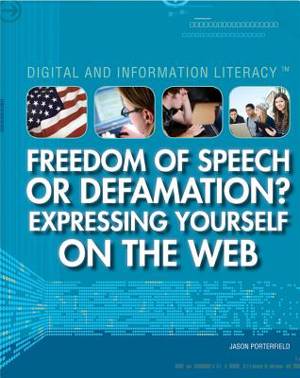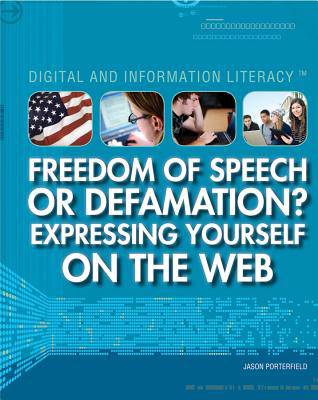
- Afhalen na 1 uur in een winkel met voorraad
- Gratis thuislevering in België vanaf € 30
- Ruim aanbod met 7 miljoen producten
- Afhalen na 1 uur in een winkel met voorraad
- Gratis thuislevering in België vanaf € 30
- Ruim aanbod met 7 miljoen producten
Zoeken
Freedom of Speech or Defamation? Expressing Yourself on the Web
Jason Porterfield
€ 51,45
+ 102 punten
Uitvoering
Omschrijving
Digital communication has quickly become a dominant form of interaction in our society and worldwide. The instantaneous convenience of conversation and dialog with friends down the street or strangers halfway across the globe is a wondrous technological development and one with enormous potential for relationship-strengthening, idea-sharing, and community-building. Yet the anonymity of digital communication and self-expression also provides some users with a false sense of impunity. They feel encouraged to say things they wouldn't say in a face-to-face encounter. Some of these posts can be bullying; some can involve hate speech or defamation. Readers will walk the line that separates harsh but legitimate criticism, which is protected by free speech provisions of the Constitution, from defamation and other illegal forms of expression. They also wade into these troubled waters, sort through the major legal precedents, and are provided with some invaluable guidelines to follow when expressing themselves or communicating with others via the Internet.
Specificaties
Betrokkenen
- Auteur(s):
- Uitgeverij:
Inhoud
- Aantal bladzijden:
- 48
- Taal:
- Engels
- Reeks:
Eigenschappen
- Productcode (EAN):
- 9781448883561
- Verschijningsdatum:
- 30/12/2012
- Uitvoering:
- Hardcover
- Formaat:
- Bibliotheekbinding
- Afmetingen:
- 185 mm x 236 mm
- Gewicht:
- 136 g

Alleen bij Standaard Boekhandel
+ 102 punten op je klantenkaart van Standaard Boekhandel
Beoordelingen
We publiceren alleen reviews die voldoen aan de voorwaarden voor reviews. Bekijk onze voorwaarden voor reviews.








